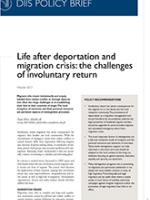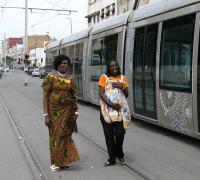What happens after deportation and emergency return from migration crisis?
Migrants who return involuntarily and empty-handed from violent conflict or through deportation often face huge challenges in re-establishing their lives in their countries of origin. What happens when they return and what should policy makers consider?
In this new DIIS Policy Brief senior researcher Nauja Kleist, DIIS, and Dr George Bob-Milliar, Kwame Nkrumah University of Science and Technology, Ghana, address these questions. They argue that while the circumstances of emergency return from violent conflicts or natural disasters clearly differ from deportation both groups of returnees may encounter problems with reintegration. Returning ‘home’ involuntarily is thus not necessarily a matter of returning to a familiar and welcoming place. Rather involuntary return may cause impoverishment, marginalization and social unrest, as well as high-risk re-migration.
The brief presents the following key findings and recommendations.
- Involuntary return has severe consequences for the migrant, his or her family and the local reception community. The prominence of deportation as a migration management tool should therefore be reconsidered. Likewise the legal protection of displaced migrant workers should be upgraded to avoid stranded migrants and unassisted emergency return from migration crises.
- The most important factors in reintegration are a safe and conducive mode of reception and the personal resources and networks of returnees. Tailor-made reintegration support can help returnees in the short term and should be adapted to the local context. In the long run, initiatives focusing on general poverty reduction, equality and security are important.
- Many reintegration programs aim at preventing re-migration, but permanent settlement is not always the most realistic solution in areas of high migration. Promoting safe and legal migration can be useful when there is ample access to such forms of mobility, otherwise campaigns against irregular migration and/or the promotion of legal migration risk having little or no effect.
Nauja Kleist will present the conclusions of the brief at a DIIS migration seminar Thursday October 10 (in Danish).
DIIS Experts



